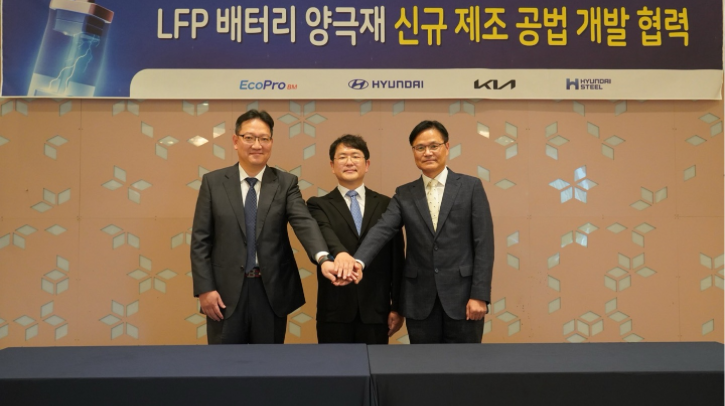A new project has been launched by Hyundai and Kia to develop lithium-ion phosphate (LFP) battery cathode material in partnership with Hyundai Steel and EcoPro BM.
The Korean Ministry of Trade, Industry and Energy is supporting this four-year project as part of the ‘LFP Battery Technology Development’ initiative. Soonjoon Jung, vice president and head of the electrification and driving materials development group at Hyundai Motor and Kia, said “Through this project, we aim to reduce import reliance and enhance the technological competitiveness of the country and Hyundai Motor Group by internalizing necessary technologies.”
Conventionally, the production of LFP battery cathode materials involves adding lithium to precursor materials like phosphate and iron sulphate. With the new method of direct synthesis, it simultaneously adds phosphate, iron powder and lithium without creating a separate precursor.
The direct synthesis process is environmentally friendly and cost-competitive compared to conventional processes. However, to increase production efficiency, it is vital to ensure impurity-free and uniformly sized raw materials.
With help from Hyundai Steel, Hyundai and Kia will develop high-purity fine iron powder processing technology using domestically recycled iron. EcoPro BM will then step in and use it to develop directly synthesized LFP battery cathode material.
The goal is to develop LFP cathode material that enables fast charging technology and exhibits high-level charging and discharging performance at low temperatures. This collaboration is significant as it connects the steel, battery and automotive sectors.


